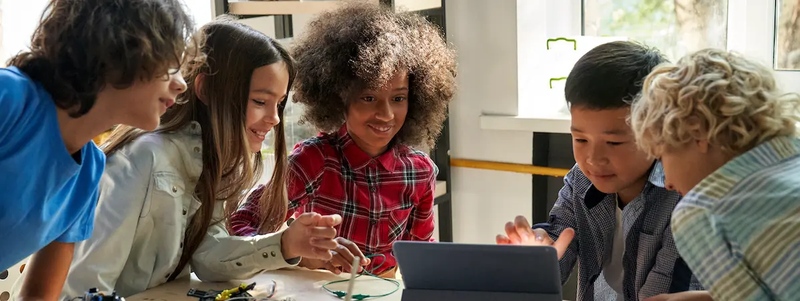
Shutterstock
Nov. 18, 2024
In a guest blog for AfterSchool Snack , An-Me Chung explored how generative AI can address long-standing challenges in education and highlights the need for guardrails when integrating AI in learning systems. Chung also discussed how afterschool programs are experimenting with AI to promote youth agency.
Generative artificial intelligence (GenAI), a type of AI that can create new content, has sparked both excitement and trepidation in formal and informal education settings. Like many, we at New America are exploring the vast opportunities AI offers while considering the necessary guardrails to ensure all young people have equitable access to meaningful learning opportunities.
In our Teaching, Learning, and Tech program, we have been discussing how AI could support long standing challenges in education. GenAI has the potential to consolidate information more efficiently, enhance personalized learning, and support open educational practices. By incorporating adaptive instruction, AI can tailor learning experiences to meet the diverse needs of all students.
And when high-quality materials are culturally responsive and teaching is done well, research shows that students not only learn academic content but also gain insights into language, attitudes, beliefs, and behaviors across cultures. This, in turn, helps build their identities and fosters an understanding of societal expectations for themselves and others. Associated outcomes include enhancing youth engagement, improving academic achievement, supporting learning about various subjects, and influencing career interests.
Read the full article here.